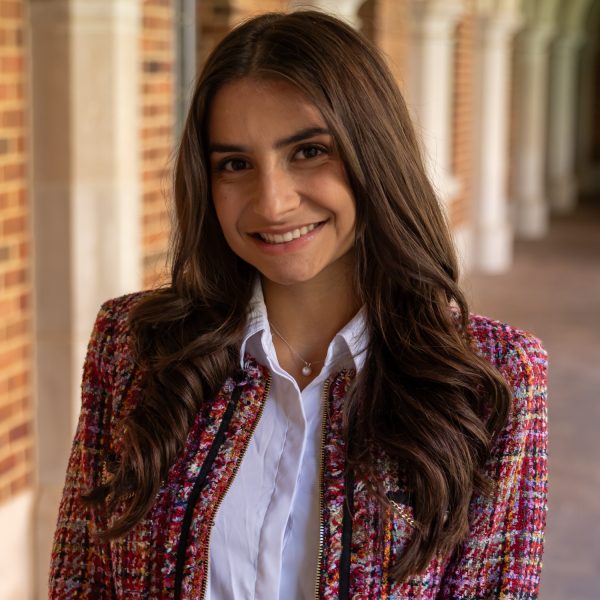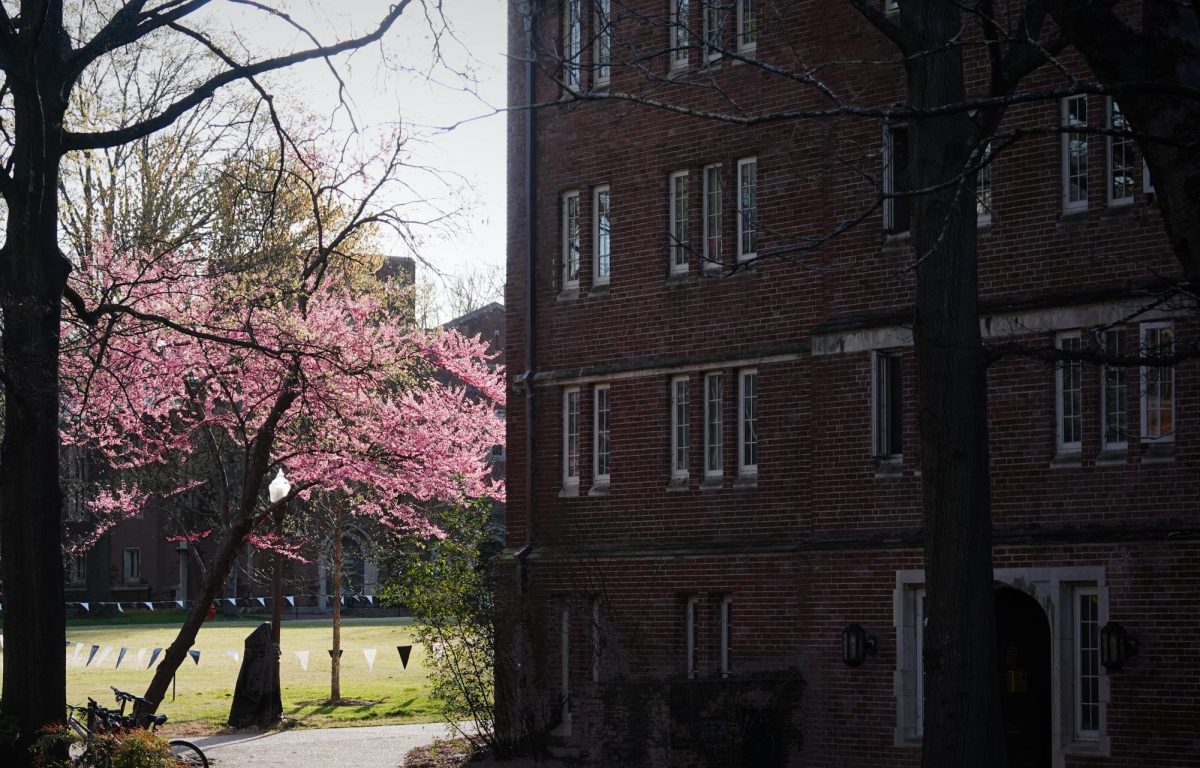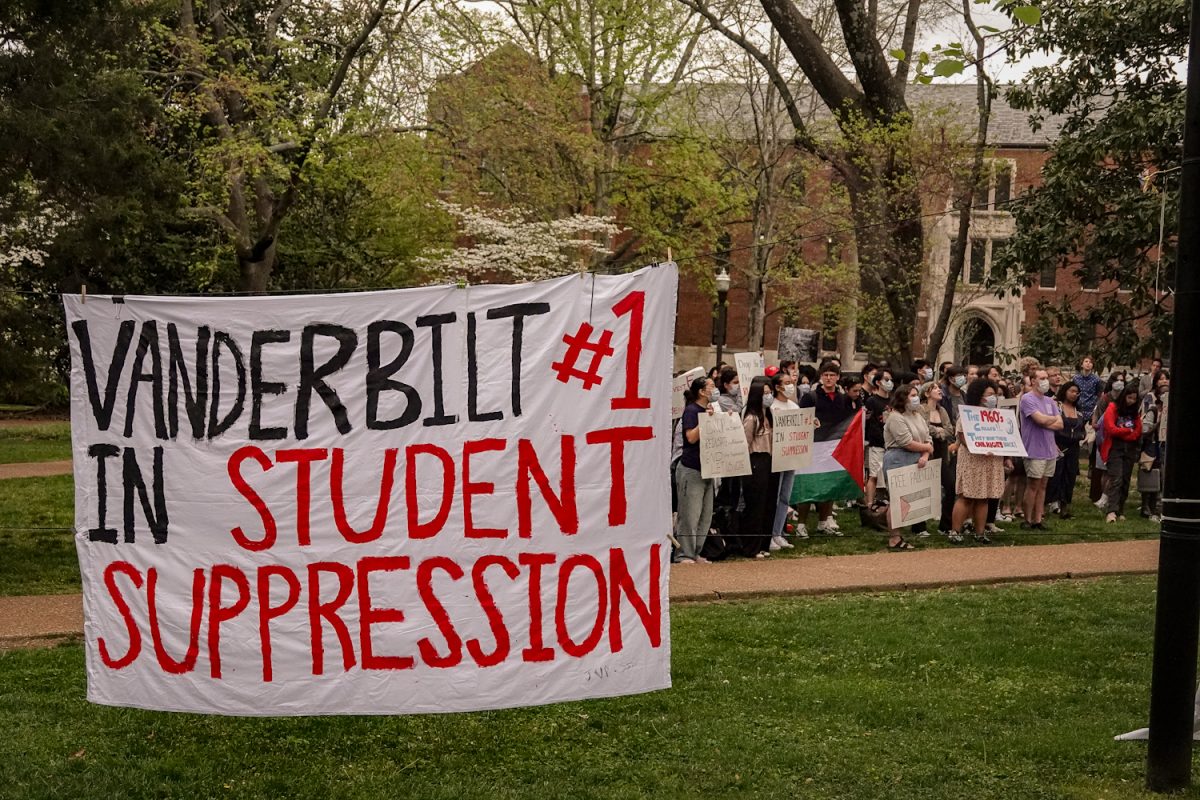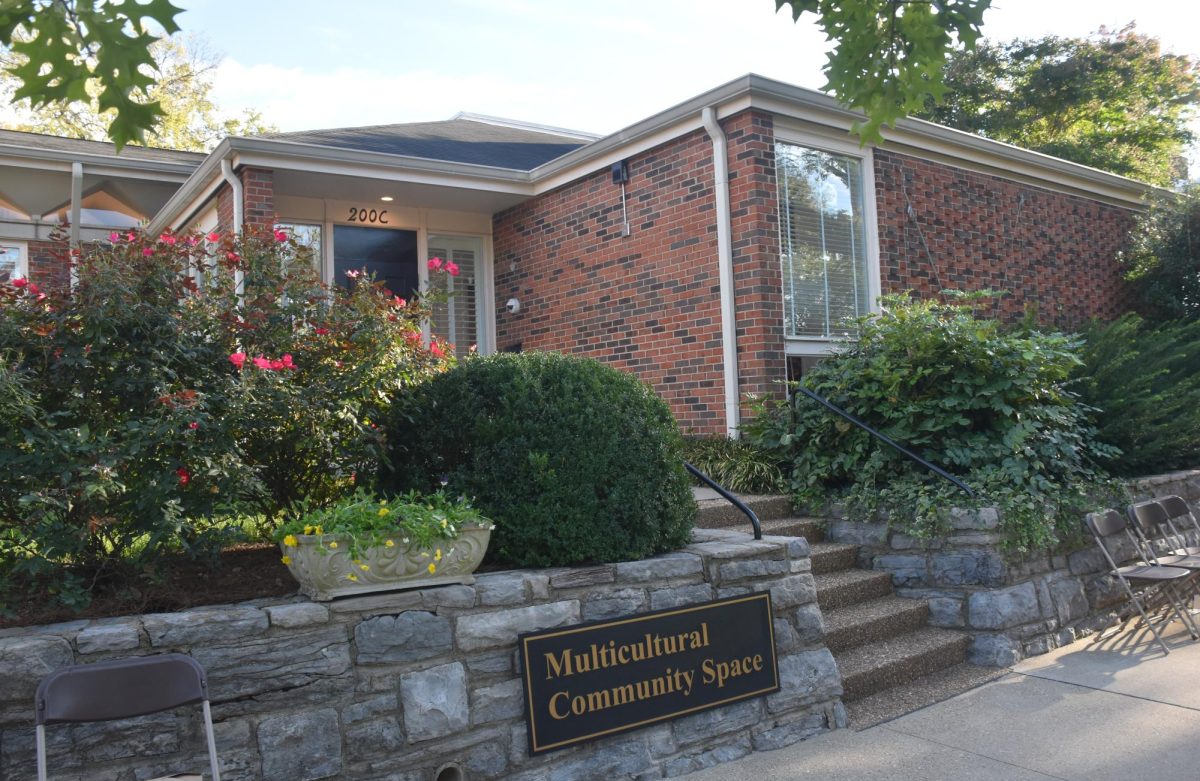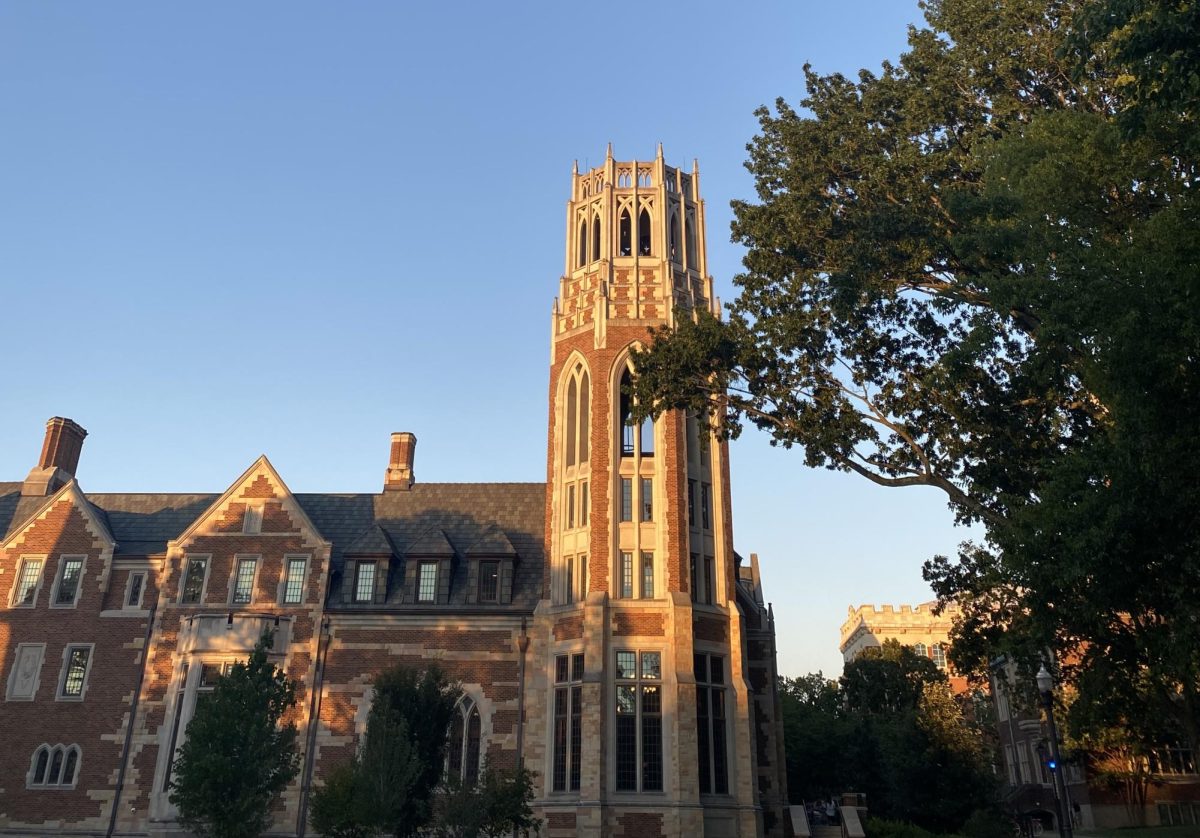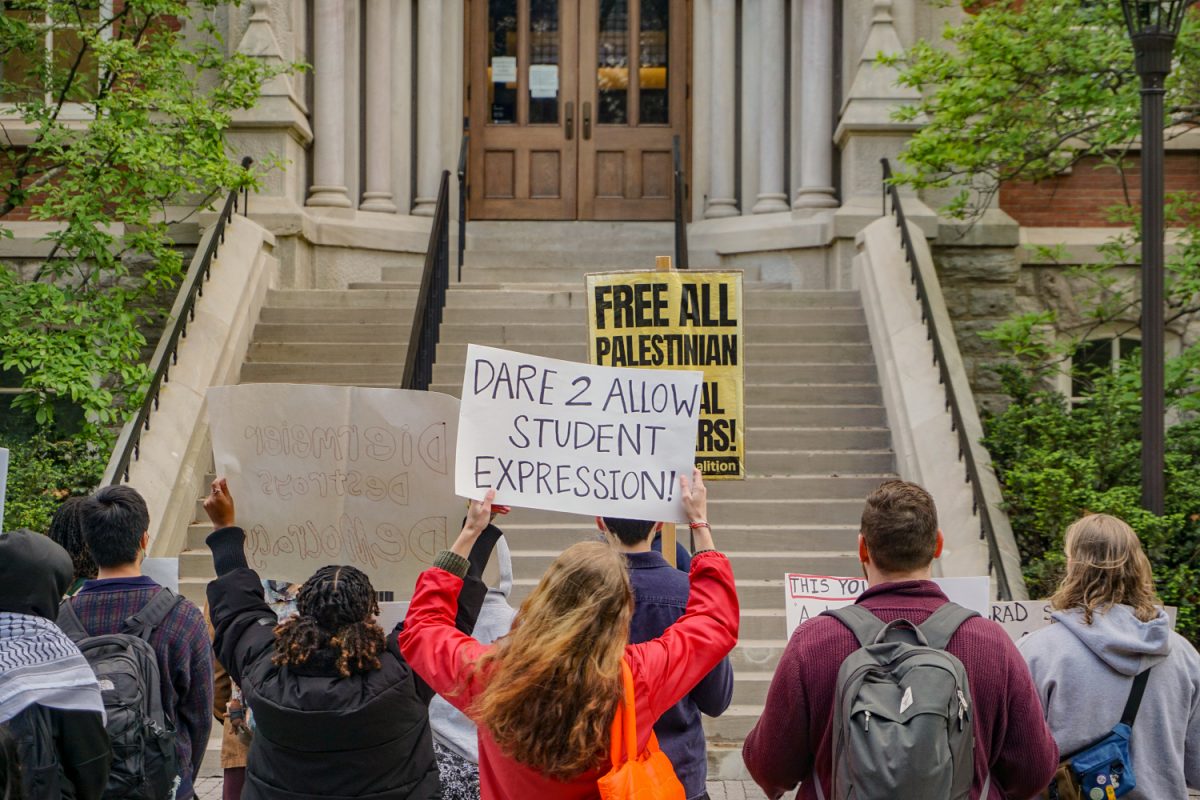Students who voted against Vanderbilt’s chapter of Students Supporting Israel joining the Multicultural Leadership Council in March 2024 tell The Hustler that they held multiple reasons for doing so, including alleged differences in values and goals. Senior Maya Robin, president of Vanderbilt SSI, asserted that the vote was “blatant” antisemitism and “political.”
Vanderbilt SSI is a secular student group associated with the national Students Supporting Israel organization. It is one of two organizations — joining Vanderbilt United Mission for Relief and Development — in at least the past few years to be rejected from the MLC, according to outgoing MLC President Zack Maaieh, a senior. He said voting records are not kept beyond a few years.
Students voted more strongly against Vanderbilt SSI than Vanderbilt UMR and expressed more varied reasons for rejecting Vanderbilt SSI.
Alleged discrimination
Referring to Zionism as a Jewish value, Robin said the MLC’s rejection of Vanderbilt SSI wrongly obstructs Jewish students from conversations about diversity and multicultural spaces due to their religion. She stated that this alleged discrimination contradicts the MLC’s mission.
“Rejecting SSI from the MLC constitutes denying Jewish group membership based on their core religious belief,” Robin said. “Space for diversity, inclusion, and cross-cultural engagement on campus should not be gatekept for a select few, but rather welcoming to a wide range of perspectives and experiences.”
On the other hand, an executive board member of Vanderbilt’s chapter of Jewish Voice for Peace — an MLC member organization — claimed that the vote against Vanderbilt SSI joining the MLC was not related to antisemitism due to the organization being secular. This executive board member is being kept anonymous for protection from professional retribution.
SSI’s cultural association
An executive board member of the Association of Latin American Students and another MLC organization said their organizations voted against SSI and Vanderbilt UMR joining the MLC for some similar reasons, such as the organizations’ alleged lack of cultural association. The JVP executive board member likewise stated that they voted to reject Vanderbilt SSI from the MLC due in part to its organization’s secular makeup. The ALAS executive board member is being kept anonymous for protection from professional retribution.
The MLC Constitution reads that it serves as an “umbrella organization” of Vanderbilt’s social justice, identity-based and multicultural student organizations.
“[SSI is] supporting a nation-state built on the ideology of political Zionism. It’s not really celebrating a culture or an identity,” the ALAS executive board member said.
Robin stated that SSI aligns with the MLC’s goals through advocacy against antisemitism — which she defined as including anti-Zionism — and uplifting a part of Jewish culture. She emphasized the importance of countering antisemitism and outlined problems she sees with anti-Zionism.
“Zionism, or Jewish self-determination, is a core part of many Jews’ cultural and religious identity,” Robin said. “Opposing Zionism often disregards both the historical and contemporary threats to Jewish survival and the important role that Israel plays in Jewish identity and life.”
SSI’s collaboration and alignment with MLC
The ALAS executive board member stated that they voted against Vanderbilt SSI due to believing that the organization does not truly want to collaborate with other student groups. They and the JVP executive board member said SSI’s goals and values are antithetical to the MLC's. For example, the ALAS board member stated that SSI cannot advance toward unity — a core MLC value — because it “work[s] against” Palestinians and the Palestinian cause.
Robin said Vanderbilt SSI had aspired to work with other members of the MLC to strengthen inclusivity on campus, make their voices heard and protect its members from antisemitism.
The ALAS executive board member, who personally disagrees with SSI’s mission, added that the membership of the MLC and many MLC organizations in the Vanderbilt Divest Coalition conflicts with SSI’s goals. Hence, they stated that Vanderbilt SSI joining the MLC would have obstructed the MLC from being a “safe space” for member organizations.
The Vanderbilt Divest Coalition is an unregistered student organization composed of students and registered student organizations aiming to bring the international Boycott, Divest, and Sanction movement to campus. It led the March sit-in at Kirkland Hall for which multiple students were suspended and expelled.
“I think if a lot of the organizations do not support Israel, I really think there’s a very clear disconnect [between SSI and the MLC] that just isn’t necessarily compatible,” the ALAS board member said.
While Robin said she considers Vanderbilt Divest Coalition an antisemitic group, she explained that the benefits of joining the MLC outweigh this conflict for SSI. She asserted that Vanderbilt SSI deserves a safe space like other student organizations on campus, likening the organization to marginalized and “other groups seeking solidarity on campus.”
“We did not intend to push our beliefs on other groups but rather to make our voices heard respectfully in the MLC community,” Robin said. “As an MLC member, SSI would have had disagreements with the Vanderbilt Divest Coalition but would [have] take[n] the opportunity of a shared space to constructively explain our perspective and work to find common ground to achieve our shared goals of creating space for diversity and cultural awareness on campus.”
SSI’s pitch
The JVP executive board member added that SSI’s presentation pitch to join the MLC was “unconvincing.” They said they felt this way partly due to Vanderbilt SSI executive board members allegedly being unable to speak on behalf of the organization for some questions.
Robin confirmed that Vanderbilt SSI board members, including herself, can only speak for themselves, not on behalf of the organization.
Inter-MLC support for current members
The ALAS and JVP executive board members added that their reasoning for voting against Vanderbilt SSI would have also led them to reject ‘Dores for Israel — a current MLC member organization — if they had been at Vanderbilt for the vote. According to its Constitution, DFI is affiliated with Vanderbilt Hillel, an umbrella organization for Jewish life on campus. Despite this connection, the DFI Constitution reads that all undergraduate students are eligible to join.
On the other hand, the ALAS executive board member stated that they would have voted in favor of Vanderbilt’s chapter of Students for Justice in Palestine — a secular advocacy organization previously named ‘Dores in Solidarity with Palestine — joining the MLC due to their belief that the organization was formerly more culturally oriented. The last DSP Constitution from 2022 describes the organization as a “secular, student-led human rights advocacy group composed of students, faculty, and staff of various backgrounds.”
The ALAS executive board member speculated that the current political climate surrounding the war in Gaza led MLC members to vote against SSI this semester compared to previously accepting DFI. Despite this view, they said they are not advocating to remove DFI from the MLC.
“The people who have joined this community have already been welcomed in,” the ALAS executive board member said.



